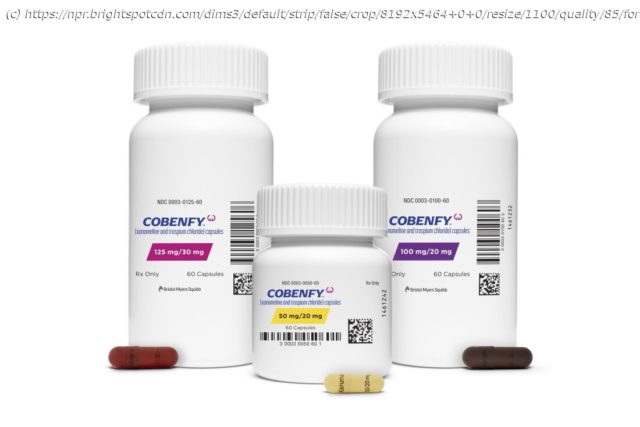A medicine that sidesteps the brain’s dopamine receptors to reach different targets represents a new approach to schizophrenia treatment. The Food and Drug Administration approved it Thursday.
For the first time in decades, the Food and Drug Administration has approved a new type of drug for schizophrenia.
The twice-a-day pill to be marketed by Bristol Myers Squibb will be called Cobenfy, though it had been referred to as KarXT during development. Its main advantage is that it appears to have fewer side effects than current medicines.
That difference has captured the attention of patients like Tiffany, a librarian in Oklahoma. She asked us to use only her first name because of the stigma associated with schizophrenia.
When she was first put on an antipsychotic drug, she says it made her feel like a zombie. Watching a video of her birthday party that year, she didn’t recognize herself.
“I was opening presents — everyone was happy. And I’m just sitting there like, there’s nothing going on. Like, I’m staring at a blank wall,” she says. “And so I lied and I told everyone I was better.”
So she stopped taking the drug and basically white-knuckled it for years until she experienced another psychotic episode.
Then, she played what she calls the “meds game,” trying different pills until one worked for her. But some of the side effects were brutal. Common antipsychotic drugs can cause weight gain and increase the risk for diabetes.
One gave Tiffany a movement disorder.
“So I was pacing in my office for eight hours a day, and it is exactly 3 1/2 steps, turn, 3 1/2 steps, turn,” she says. “It was a nightmare.”Decades of dopamine-focused drugs
Since the first antipsychotic drug was introduced in the 1950s, the subsequent medications to treat psychosis act on the same chemical that helps the brain communicate with the rest of the body: dopamine.
“The dopamine hypothesis proposed that schizophrenia is associated with excessive dopamine neurotransmission — so too much dopamine activity,” says Dr.






